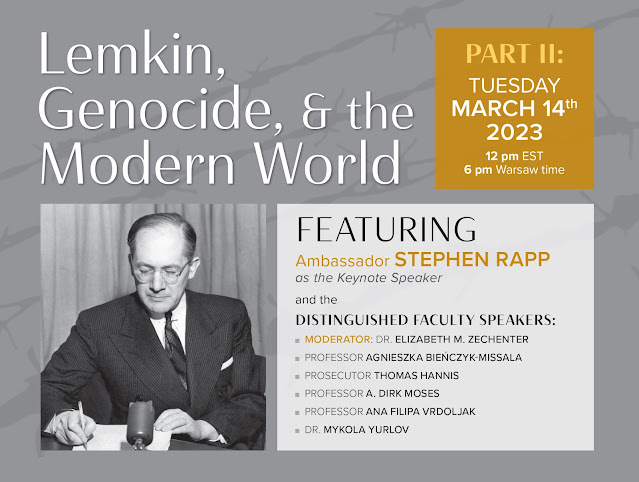The war in Ukraine occasioned several papers at last weekend's
annual meeting of the
New England Political Science Association (NEPSA) in Mystic, Connecticut.
The NEPSA meeting offers an outstanding opportunity to preview cutting edge research presented in a low-stakes and supportive setting. Long-time NEPSA Executive Director Steven Lichtman, a professor of political science at Shippensburg University, is the brilliant maestro, setting the right collegial tone while supervising a rigorous selection process that guarantees top-shelf work.
Rotating location in New England states, NEPSA has become one of those regional conferences that is so highly regarded as to draw participation from across the country and from neighboring disciplines including law. The program is open to faculty and graduate students; law students of mine have participated in the past. This year the program opened two panels to undergraduate researchers. An extremely selective submission process yielded undergraduate presenters fully capable of going toe to toe with working scholars.
There is scarcely a corner of politics and its study not being reshaped by the war in Ukraine. So it's no surprise that the war motivated many of the papers at this year's NEPSA. For all that I learned from myriad presenters, I thought I might share just a taste of takeaways related to the war.
★
A Ph.D. candidate at the University of New Hampshire (UNH), Tim Hoheneder is thinking about the effect of the Ukraine war on Arctic politics. He explained that Russia assumed the rotating chair of the eight-state Arctic Council just before the full-scale invasion of Ukraine. The United States said it would not participate on the council during the term of the Russian chair, which ends this summer, in 2023. The United States did say it would continue to work bilaterally with other states on Arctic issues.
Now what will become of the council is up in the air. Major issues affecting global security, involving nuclear proliferation, militarization, indigenous rights, and climate change, hang in uncertainty. Hoheneder's paper is "Science Diplomacy as a Neofunctionalist Tool in a Post-Ukrainian Invasion Arctic."
★
A master's student at UNH, Sarah DeSimone is considering how the U.N. Security Council might be made functional since the Russian veto has neutralized any meaningful response to the war. She explained both the long history of attempted Security Council reform and the recent history of failed resolutions on Ukraine.
The only reform to the Security Council to gain traction has been the recent Liechtenstein "Veto Initiative," DeSimone explained. The initiative modestly would require that a council state explain a veto. DeSimone voiced support for an amalgam of proposals that have been floated before: First, the veto should be prohibited in matters of genocide, human rights violations, and serious violations of international law. Second, in conjunction with the prohibition, an oversight mechanism should preclude countries from voting on matters in which they are directly concerned.
Without Security Council reform, DeSimone warned, lack of credibility will render the United Nations "obsolete." DeSimone's paper is "Reforms to the Security Council: Salvaging the Liberal World Order by Examining the Crisis in Ukraine."
★
A senior at Providence College and editor-in-chief of the student newspaper, The Cowl, Sarah McLaughlin spent 46 unenviable days immersed in a Russian social media image board, Dvach (Двач). Her findings are fascinating. She discovered a world of hyper-masculine Russian nationalists almost as disgusted with Vladimir Putin as they are with Ukraine. The community evinces nostalgia for a perceived past of conservative values and faults Putin for not living up to anti-western and anti-liberal values. The community opposes the war in Ukraine and the mobilization of Russians to support it, even as participants depict the idealized Russian man as strong, hardworking, and dutiful to country. Animals, especially pigs and monkeys, represent Ukrainians, women, and Putin in demeaning memes.
McLaughlin's paper is "Russia the Bear, Putin the Pig: Russian Nationalism and the Imagined Community of Memes."
✪
NEPSA's next annual meeting is slated for spring 2024 in Newport, R.I. Look for a call for papers by September with a December 2023 deadline.




